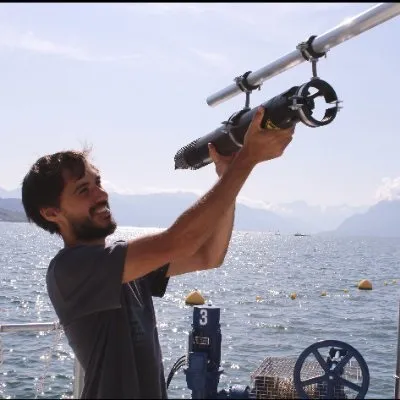About the project
This project will use observations from autonomous platforms and an observationally constrained model to investigate the processes controlling the lifecycle, biogeochemical function and climatic sensitivities of Winter Water – an upper-ocean water mass that plays a key role in the Southern Ocean overturning circulation and carbon cycle.
This project will determine the mechanisms governing the lifecycle, carbon-system function and climatic sensitivities of the Winter Water (WW).
Winter Water is a cold and fresh upper-ocean water mass found in the Southern Ocean to the south of the Polar Front. Its production is thought to be driven by a combination of intense cooling, sea ice formation and wind forcing during the Antarctic winter, and it persists into the summer as a remnant subsurface layer characterised by a temperature minimum.
Winter Water is the pivot water mass of the Southern Ocean overturning circulation, representing the abrupt transition between poleward-flowing, upwelling Circumpolar Deep Water (CDW) that is rich in nutrients and carbon, and equatorward-flowing mode and intermediate waters that are relatively impoverished in those tracers. In spite of Winter Water’s important role in global ocean circulation and marine biogeochemical cycles, little is known about the processes controlling its production and eventual transformation into other water masses, or about how Winter Water volume, properties and far-field impacts will be affected by the ongoing perturbations in atmospheric and cryospheric forcings over the Southern Ocean (e.g., diminishing Antarctic sea ice cover).
The project will address this fundamental knowledge gap through novel analyses of measurements by a range of autonomous platforms (such as biogeochemical Argo floats, gliders and surface platforms), and of a physical-biogeochemical model of the Southern Ocean constrained by observations (the Biogeochemical Southern Ocean State Estimate, B-SOSE).
Training
All doctoral candidates will enrol in the Graduate School of NOCS (GSNOCS), where they will receive specialist training in oral and written presentation skills, have the opportunity to participate in teaching activities, and have access to a full range of research and generic training opportunities.
GSNOCS attracts students from all over the world and from all science and engineering backgrounds. Specific training will include:
- opportunities to take part in an oceanographic cruise
- training in a range of analytical techniques for ocean observations and models
- training in the efficient analysis of large data sets using high-performance computing resources
- training in the theoretical frameworks of ocean dynamics and the marine carbon cycle
- opportunities to attend a wide range of summer schools, training courses and scientific conferences
- opportunities for extended visits to external supervisors
Additionally, the PhD project will be integrated within the NERC-funded Iron-Man (Iron and Manganese Impacts on the Future of Southern Ocean Ecosystems) programme, a large consortium of U.K. and international institutions aiming to elucidate the role of micronutrients iron and manganese in determining the future evolution of Southern Ocean ecosystems. Through Iron-Man, the student will gain access to a wide range of experts in Southern Ocean biogeochemistry, new data sets and Southern Ocean fieldwork opportunities.
Supervisors
You will also be supervised by organisations other than the University of Southampton, including Dr Sarah Nicholson from Southern Ocean Carbon and Climate Observatory and Professor Alessandro Tagliabue from University of Liverpool.
